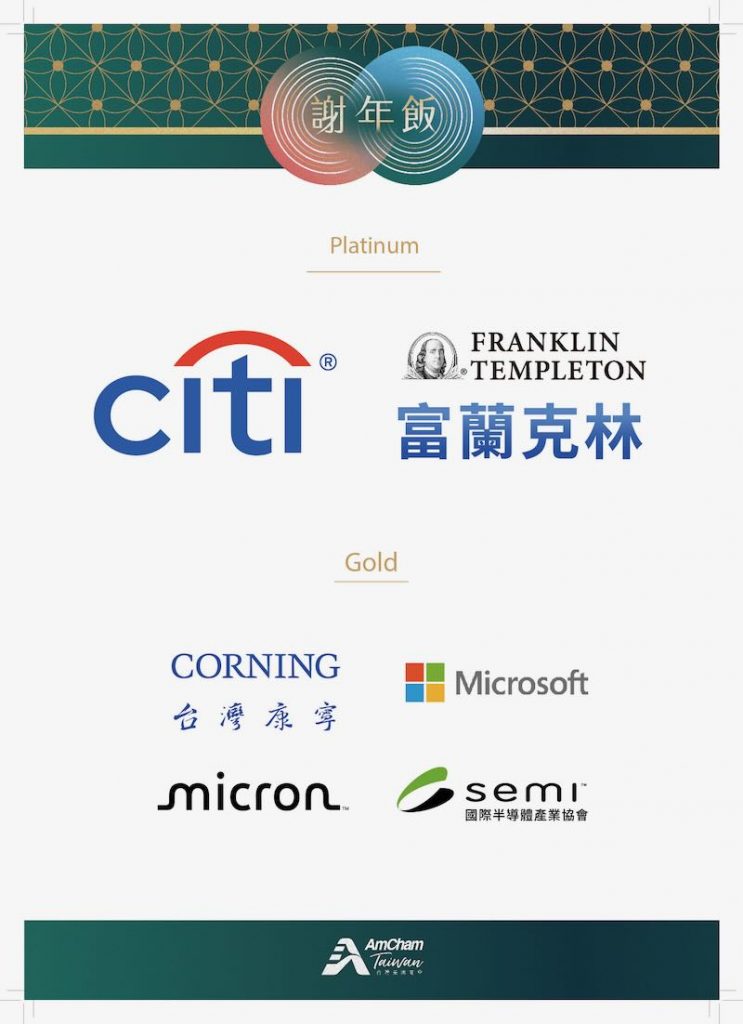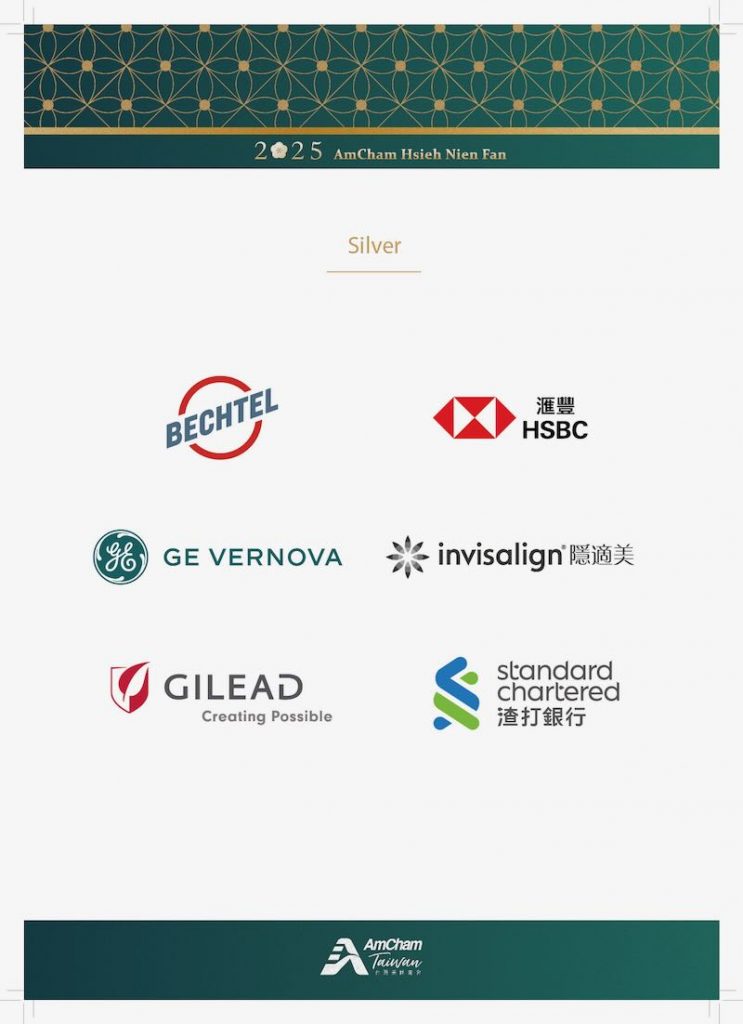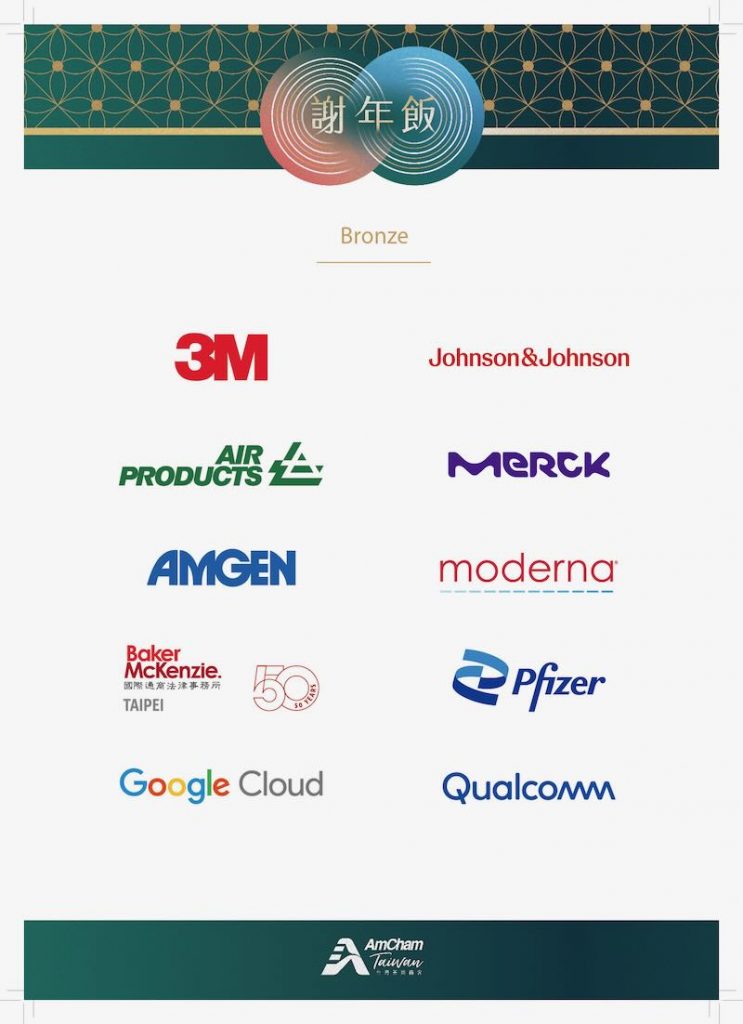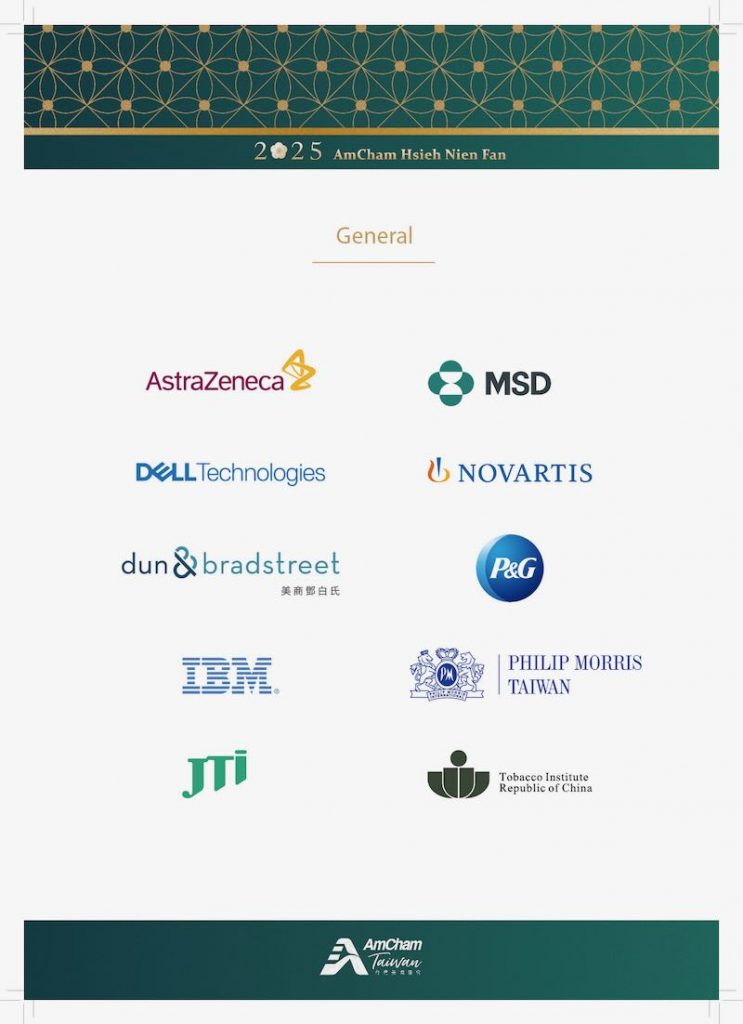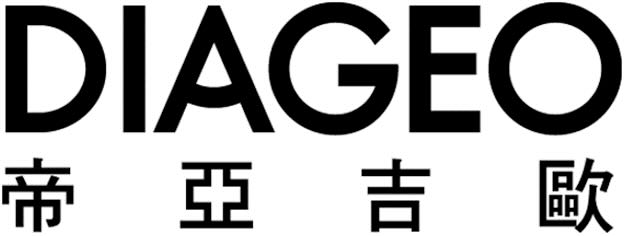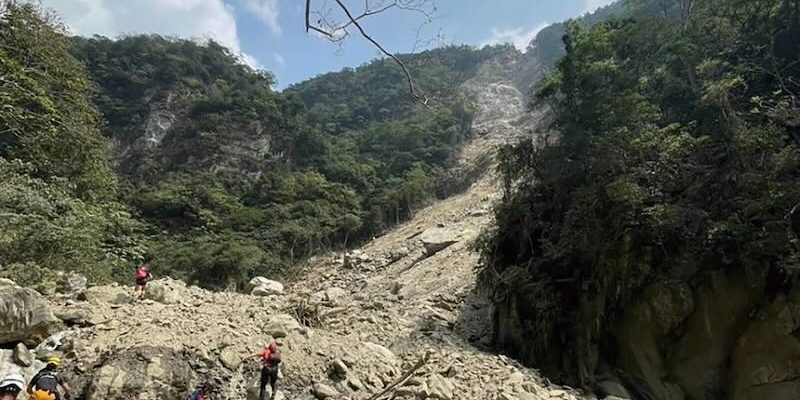
On March 20, the Taipei Marriott Hotel was once again abuzz with energy as nearly 800 members, guests, and government officials gathered for the 57th annual Hsieh Nien Fan banquet, hosted by the American Chamber of Commerce in Taiwan.
The Hsieh Nien Fan serves as a way for the Chamber to thank its partners in the Taiwan government for their cooperation and support. It’s also a prime demonstration of AmCham’s influence, vitality, and commitment to the U.S.-Taiwan economic and trade relationship.
A message that echoed across the evening’s four speeches was the centrality of U.S.-Taiwan cooperation as a strategic, mutually beneficial partnership built on trust, innovation, and resilience.
Delivering the opening remarks, AmCham Taiwan Chairperson Dan Silver noted that “Taiwan consistently punches above its weight in global trade and investment,” adding that the U.S.-Taiwan commercial relationship is stronger than ever. He pointed to a record 40% of Taiwan’s total foreign investment going to the United States in 2024 and Taiwan’s position as the United States’ seventh-largest trading partner as clear indicators of its success.
Silver highlighted key achievements, including the signing of the first agreement under the U.S.-Taiwan Initiative on 21st Century Trade, and pressed for action on resolving double taxation – calling it “a long-standing AmCham advocacy priority.” He also praised Taiwan’s diverse industrial output, from fasteners to optical components, and even golf.
Focus must remain on regulatory reforms that foster a consultative, innovative, and agile business environment, Silver said.
Upholding a more than two-decades-long tradition, Taiwan President Lai Ching-te provided the evening’s keynote remarks. He emphasized that “a great time to invest in Taiwan is now,” pointing to Taiwan’s strong investment environment and the increasingly synergistic relationship between American and Taiwanese companies in areas such as semiconductors, AI, and advanced manufacturing.
“Taiwan’s and America’s strengths are complementary,” he said. “By leveraging each other’s high-tech expertise, we can boost industrial innovation and economic growth in both our countries.”
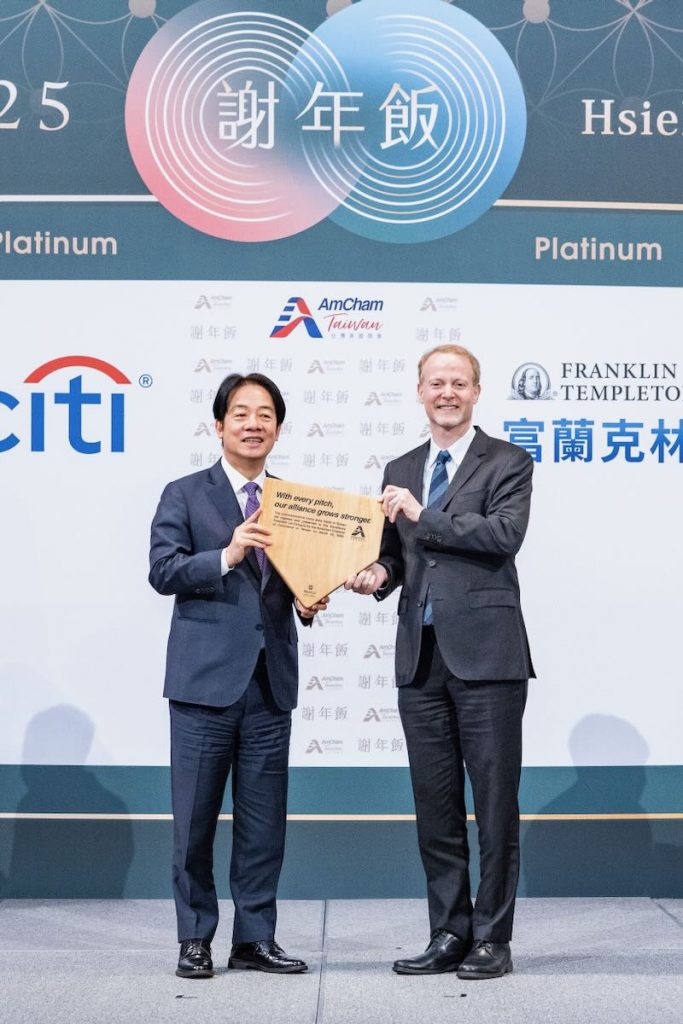
This year’s banquet was the first in his current role for Raymond Greene, director of the American Institute in Taiwan (AIT). In his remarks, Greene emphasized the strength of the U.S.-Taiwan relationship, highlighting the economic and strategic benefits of deepening cooperation. He pointed to landmark developments such as TSMC’s historic US$100 billion investment pledge in Arizona and the expanding footprint of American firms like AMD, Micron, and Nvidia in Taiwan.
“Together, our collaborative R&D work is pushing the boundaries of technology,” Greene said. He also emphasized the role of Taiwan in U.S. reindustrialization, asserting that Taiwan companies were first movers not only into China decades ago but now in moving production out of it, with many choosing the United States as a new base of operations.
“On behalf of President Trump and his administration, let me underscore our commitment to work hand-in-hand with Taiwan,” he said. “Our cooperation is more critical than ever and is making both the United States and Taiwan safer, stronger, and more prosperous.”
AmCham was honored to have Alaska Governor Mike Dunleavy deliver special remarks at the Hsieh Nien Fan. “It was a tremendous honor to spend this evening with the leaders of Taiwan and to celebrate our shared interests, ambitions, and futures,” he said. “By deepening our trade relations anchored on the Alaska LNG project, we can create a system that benefits both our economies and creates a brighter future for us both.”
Energy security emerged as a major theme of the evening. Director Greene and Governor Dunleavy both highlighted the potential of U.S. liquefied natural gas (LNG) exports to Taiwan. Governor Dunleavy spotlighted the Alaska LNG pipeline project, positioning it as a vital component of Taiwan’s energy diversification strategy and a promising avenue for bilateral investment.
“This project will deliver 20 million tons of clean, reliable natural gas annually to the Pacific,” Dunleavy said. “With shipping from Alaska to Taiwan taking only 10 days, this is a strategic opportunity to enhance energy security and economic resilience.”
President Lai welcomed the opportunity, noting that Taiwan is keen to diversify its energy sources and views Alaskan LNG as a reliable and geographically advantageous option.
While energy and semiconductors dominated the agenda, all speakers returned to one central message: Taiwan is a reliable, high-performing partner for the United States across sectors. Silver captured the spirit of the evening best, stating, “The U.S.-Taiwan relationship is built on trust. It’s grounded in shared values, mutual economic benefit, and long-term cooperation.”
AmCham expressed its appreciation for the nearly 150 Taiwanese government officials in attendance and thanked the National Development Council for coordinating White Paper meetings. Silver also praised the leadership of President Lai for prioritizing whole-of-society resilience, healthcare reform, and climate change response, and emphasized AmCham members’ readiness to contribute.
The Chamber looks forward to working closely with partners on both sides of the Pacific to continue building a prosperous, secure, and innovative future for Taiwan and the United States.
Joining President Lai were a number of high-ranking Taiwanese central and local government officials, including: Secretary-General of the National Security Council Joseph Wu, Deputy Secretary-General of the Office of the President Ho Chih-wei, Secretary-General of the Executive Yuan Kung Ming-hsin, Minister of Foreign Affairs Lin Chia-lung, Minister of National Defense Wellington Koo, Minister of Economic Affairs Kuo Jyh-huei, Minister of Finance Chuang Tsui-yun, Minister of Labor Hung Sun-han, Minister of Digital Affairs Huang Yen-nun, Minister of Environment Peng Chi-ming, Minister of the National Science and Technology Council Wu Cheng-wen, Minister of the National Development Council Liu Chin-ching, Minister without Portfolio Chen Shih-chung, and Minister without Portfolio Yang Jen-ni. Representation from local governments included Taichung City Mayor Lu Shiow-yen.
